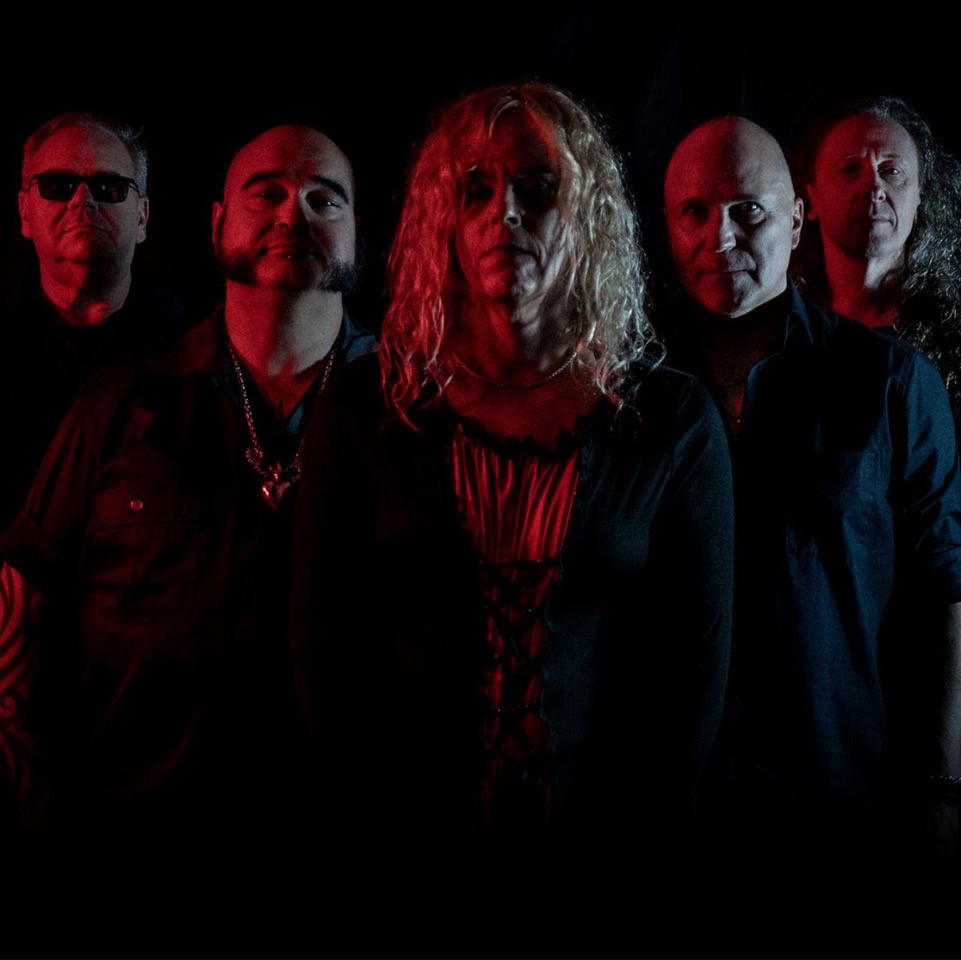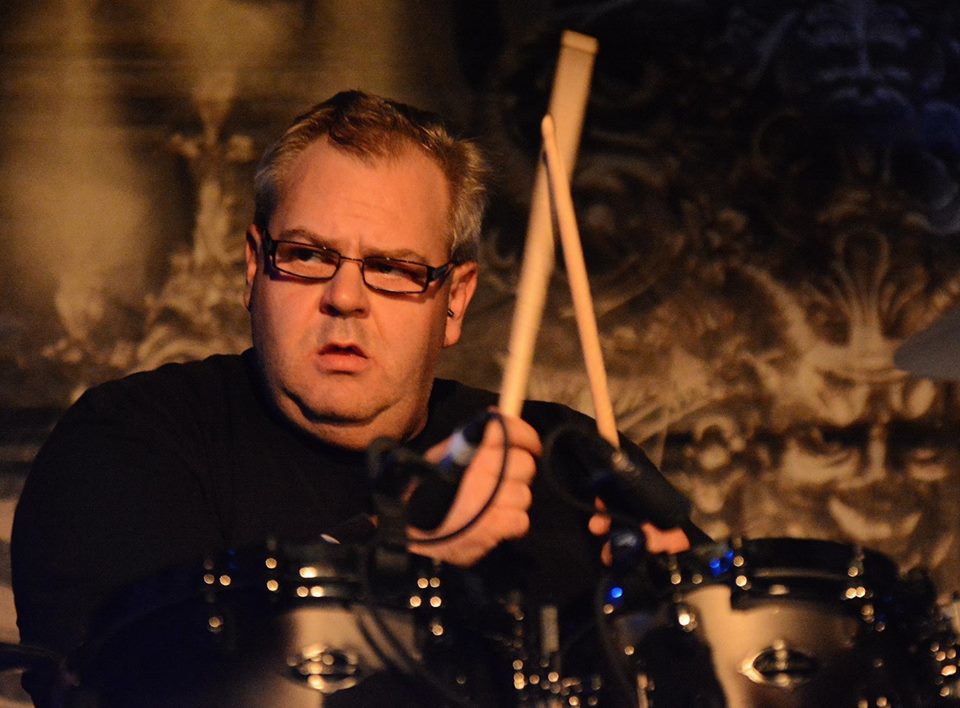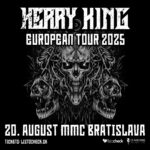

Markus Jüllich, bubeník a zakladajúci člen skupiny Crematory, rozpráva o viac než 30-ročnom dedičstve kapely, ich kľúčovej úlohe v definovaní gothic metalu, tvorivom procese nového albumu „Destination“ a o tom, ako si udržiavajú relevanciu a zároveň ostávajú verní svojim koreňom.
Aké je tajomstvo dlhoročnej existencie Crematory?
Tajomstvo je jednoduché – robíme hudbu, ktorú majú ľudia radi. Od začiatku sme mali silnú podporu fanúšikov, ktorí nám pomáhali rásť celé tie roky. Chodia na naše koncerty, kupujú si naše CD a platne a podporujú nás všetkými možnými spôsobmi. Sme za to veľmi vďační, pretože keď sme v roku 1991 kapelu zakladali, bolo to len veľké hobby a sen. Dnes žijeme ten sen.
Hrali sme na veľkých festivaloch, odohrali množstvo koncertov a vydali sme 17 albumov. Je to neuveriteľné. Sme nesmierne šťastní, že máme fanúšikov, ktorí pri nás stoja už tak dlho. To je ten najdôležitejší faktor.
Tridsať rokov je dlhý čas. Ako vnímaš vývoj gothic metalu dnes v porovnaní s jeho začiatkami?
Je to úplne iné. Keď sme začínali, Crematory bola melodic death metalová kapela. Počúvali sme kapely ako Death, Unleashed, Entombed – klasický švédsky death metal. Chceli sme však do tej hudby vniesť viac melódie, atmosféry a pocitov, takže sme začali experimentovať s klávesmi. Boli sme prvá kapela v Nemecku, ktorá ich takto použila.
Neskôr sa pridali ďalšie kapely ako Paradise Lost, Tiamat, Amorphis – vtedy vlastne vznikol gothic metal ako nový žáner z melodického death metalu. V 90. rokoch boli gothic metalové kapely prevažne mužské – Paradise Lost, Moonspell, Type O Negative. Keď dnes niekto povie „gothic metal“, myslí tým skôr kapely ako Within Temptation, Nightwish alebo Leaves‘ Eyes – zväčša s ženskými vokálmi. Ale pre mňa to nie je ten „pravý“ gothic metal.
Dnešná kapela, ktorá podľa mňa skvelo zachytáva pôvodný duch 90. rokov, je Cemetery Skyline – vedľajší projekt speváka z Dark Tranquillity. Ich štýl je skvelý návrat k pôvodným koreňom.
Hudobný priemysel sa takisto zmenil. Kedysi si musel veľa koncertovať, aby si dostal zmluvu. Dnes potrebuješ zmluvu, aby si vôbec mohol koncertovať.
Nedávno ste sa spojili s ROAR s ktorým ste sa pustili do reedícii 14 vašich starších albumov. Aké spomienky sa ti vybavili pri remastrovaní?
Manažment kapely som robil vždy ja. V roku 2023 na festivale Wacken Open Air som stretol Jochena Richarda. Spýtal sa ma, či sme stále u Napalm Records alebo sme voľní. Naučil som sa robiť krátke zmluvy – sú lepšie pre kapelu.
Jochen mi povedal, že v decembri zakladá nové vydavateľstvo a chcel by mať Crematory. Medzitým som jednal aj s inými vydavateľstvami, napríklad Rock of Angels. V decembri sa ozval, že vzniklo nové vydavateľstvo Reigning Phoenix a v tíme má veľa ľudí z Nuclear Blast, ktorých som poznal a ktorým som dôveroval. Kúpili aj Rock of Angels, ktoré je viac orientované na Európu.
Dal mi na výber a ja som si vybral Rock of Angels – kvôli ľuďom ako Markus Woskin, Iris Benota, Ute Zwini. Sme starí známi a spolupráca s nimi bola vždy výborná.
Nespravili sme len dohodu na nový album – získal som späť všetky práva na našu starú diskografiu a uzavreli sme dohodu na reedíciu 14 starších albumov. Od júna bude každý mesiac vychádzať jeden remastrovaný album s novým dizajnom, na CD, vinyle aj digitálne.
Bola to obrovská práca – remastrovať 14 albumov a zároveň vytvárať nový. Vyše 200 skladieb! Ale práve ten návrat k starému materiálu mi dal veľa inšpirácie pre nový album. Kombinoval som ten starý vibe s modernými prvkami.
Nový album Destination opisujete ako návrat ku koreňom z 90. rokov. Aké prvky ste zámerne priniesli späť?
Počas remastrovania som si robil poznámky z rôznych starších piesní – napríklad „Tears of Time“. Tie špecifické prvky som potom využil v nových skladbách ako „The Future Is a Lonely Place“.
Spravili sme aj dve tvrdšie skladby, inšpirované naším ranným melodickým death metalom. Použil som nápady zo skladieb ako „Many Shadows of Mine“ a z druhého albumu. Dá sa povedať, že som si vykradol vlastné nápady z minulosti.
Bolo teda remastrovanie hlavným tvorivým procesom pri novinke Destination?
Áno. Vybral som tie najlepšie prvky z minulých skladieb, spojil ich a pridal moderné prvky. Tentoraz sme dali viac priestoru gitarám. Rolf spravil skvelý gitarový zvuk. Ja mám síce radšej klávesy, ale tento zvuk bol tak dobrý, že sme ho posunuli do popredia.
Je na albume skladba, ktorá má pre teba špeciálny význam?
Určite „The Future Is a Lonely Place.“ Vždy keď ju počujem alebo hrám, spomeniem si na môjho zosnulého otca. Neviem prečo, ale dostanem zimomriavky. Možno je to tým, že som do nej vložil prvok zo skladby „Frontiers of Time“.
Práve táto pieseň bude mať aj videoklip, ktorý vyjde spolu s albumom 2. mája.
Plánujete veľké nemecké turné. Ako sa pripravujete na život na turné po 30 rokoch na scéne?
Začali sme už začiatkom roka. Raz mesačne skúšame spolu, každý trénuje aj doma. Mám bicí set doma aj v skúšobni. Stretávame sa, ladíme setlist.
Zároveň riešim manažment – hotely, autobusy, vybavenie, merch. Je to kopec práce, ale milujeme to. Máme naplánovaných 12 koncertov, väčšinou cez víkend. Piatok až nedeľa hráme, potom pár dní oddych. V našom veku je to lepšie než hrať nonstop ako kedysi.
Plánujete koncerty aj mimo Nemecka? Pýtam sa hlavne na Slovensko a okolie?
Pôvodne sme nad tým uvažovali, ale museli sme zmeniť booking agentúru. Najprv sme chceli odohrať nemecké koncerty, potom Európu. Kvôli tej zmene je teraz ťažké dať európske turné dokopy.
Máme však novú agentúru a skúšame to zorganizovať – buď na konci tohto roka, alebo začiatkom budúceho. V máji 2025 oslávime 35 rokov kapely vydaním Best Of albumu a plánujeme aj výročné koncerty po celej Európe.
Po vyše 30 rokoch koncertovania – čo bol tvoj najnezabudnuteľnejší moment?
Je ich veľa, ale najviac mi zostal v pamäti Wacken Open Air 2008 – hrali sme pred 70- až 80-tisíc ľuďmi. Neopísateľný zážitok. Video je stále na YouTube.
Taktiež sme v 90. rokoch veľa hrali s Type O Negative. Preto sme aj spravili cover „My Girlfriend’s Girlfriend“ ako poctu Petovi. Odpočívaj v pokoji, brat. Zrýchlili sme to o 5 BPM a dali tomu náš groove.
Ako udržiavate setlist svieži a ako balansujete medzi klasikami a novinkami?
Raz som dal výzvu na Facebooku – nech mi fanúšikovia napíšu, čo chcú počuť. Bolo to jednoduché. Každý album má aspoň jeden hit, takže zahráme ten, a pridáme päť nových skladieb. Tak dostanú ľudia presne to, čo chcú.
Každá kapela má jeden hit, ktorý jej už tak trocha lezie na nervy. Ktorý je váš?
Nepoviem, že ho nenávidím, ale „Tears of Time“ je ten najväčší. Hrali sme ho 30 rokov. Je to naša vizitka, hit, vďaka ktorému nás spoznali po celom svete.
Je to ako keď Metallica hrá „One“ alebo Iron Maiden „Run to the Hills“. Ľudia to očakávajú. Nás to už ako hudobníkov až tak nebaví, ale vždy sa to snažíme spraviť zaujímavé – napríklad sme spravili nemeckú verziu „Tränen der Zeit“, kde sa strieda spev v nemčine a angličtine.
Aké spomienky máš na koncert na Slovensku?
Pamätám si to presne – bol to môj narodeninový koncert. A bolo neuveriteľne horúco! Na pódiu som skoro skolaboval. Mal som na hlave potítko ako Lars Ulrich, lebo pot mi tiekol priamo do očí a šialene to štípalo.
Ale samotný koncert bol fantastický, výborne zorganizovaný. Pamätám si, že pred klubom bola voda a po koncerte sme si do nej sadli, aby sme sa schladili. Skvelá atmosféra, výborné publikum. Rád by som sa vrátil a zahral si tam znovu.
Čo je podľa teba vec, ktorú ľudia na Crematory často nechápu alebo nevedia doceniť?
Buď nás miluješ, alebo nenávidíš. Nič medzi tým. Nie sme najtechnickejšia kapela – nie som Gene Hoglan, nemáme žiadneho gitarového boha ani operných spevákov. Ale spolu – najmä Felix, Catherine a ja – fungujeme perfektne. Mám ten „Crematory feeling“ v srdci. To je to, čo robí kapelu výnimočnou.
Sme jednoduchí, ale úprimní. A to ľudia cítia a cenia si.
Chceš niečo odkázať fanúšikom na záver?
Obrovská vďaka všetkým fanúšikom po celom svete. Pomohli ste nám splniť sen – 17 albumov, úžasné festivaly, nezabudnuteľné koncerty. Sme vám nesmierne vďační.
Dúfame, že vás čoskoro opäť uvidíme, hlavne mimo Nemecka. Radi by sme sa vrátili aj na Slovensko.

Crematory: 30 Years of Gothic Metal – A Conversation with Markus Jüllich
Markus Jüllich, drummer and founding member of Crematory, discusses the band’s 30+ year legacy, their genre-defining contributions to gothic metal, the creative process behind their new album „Destination,“ and how they stay relevant while staying true to their roots.
What’s the secret to Crematory’s longevity?
Yeah, the secret behind that is that we make music that a lot of people like. We’ve had really good support from our fans, who’ve made us bigger and bigger over the last 30 years. They’ve stayed strong by our side, come to our concerts, bought CDs and vinyls, and supported us in every way. We’re really thankful because when we started the band in ’91, it was a dream for each of us. That dream came true.
We can play concerts, we play big festivals, and we’ve released 17 records. That’s amazing for us. We’re really happy to have had such great fans supporting us for so long. That’s the most important thing.
Thirty years is a long time. How do you feel about the state of gothic metal now compared to when you started?
It’s totally different now. When we started, Crematory was a melodic death metal band. We listened to bands like Death, Unleashed, Entombed—the traditional Swedish death metal sound. But we wanted to add a more melodic touch, more ambience and feeling. So we started experimenting with keyboards. We were actually the first band in Germany to use keyboards like that.
Then other bands in Germany started picking up that style too—bands like Paradise Lost, Tiamat, Amorphis. That’s when gothic metal as a category was really born, out of melodic death metal. Back then, gothic metal meant male-fronted bands like Paradise Lost, Moonspell, Typonegative. But now, when people say “gothic metal,” they think of bands like Within Temptation, Nightwish, Leaves‘ Eyes—mostly female-fronted. But for me, that’s not the real gothic metal.
A band that really captures the old 90s gothic metal feeling today is Cemetery Skyline, a side project of the singer from Dark Tranquility. They bring back the original style really well.
Also, the music industry has changed. In the past, you had to play a lot of shows to get a record deal. Now, you need a record deal first before you can play shows. It’s the opposite now.
You recently partnered with ROAR to re-release 14 of your past albums. What memories came up while working on the remastering?
I’ve always handled management for the band. In 2023, at Wacken Open Air, I met Jochen Richard. He asked whether Crematory was still signed with Napalm or if we were free. I’ve learned to make short contracts—it’s better for the band.
Jochen told me he was starting a new label in December and that he wanted Crematory. I waited, talked to other labels too, including Rock of Angels. When December came, Jochen called and said they had launched Reigning Phoenix, with many of the old Nuclear Blast team I knew and trusted. They also bought Rock of Angels, which is more Europe-oriented.
He gave us the choice, and I picked Rock of Angels because of the old Nuclear Blast crew—people like Markus Woskin, Iris Benota, and Ute Zwini. We’re friends and have worked together for many years.
I didn’t just make a deal for a new album. I got all the rights back from our catalog and made a full deal to re-release the 14 older albums. Starting in June, we’ll release one remastered album each month, with new layouts, on CD, vinyl, and digitally.
It was a lot of work to remaster 14 albums and create a new one at the same time. That’s over 200 songs. But it gave me inspiration for the new album. While remastering, I caught the vibe from the old material and combined it with modern elements.
The new album Destination has been described as a return to your 90s roots. What older elements did you bring back?
There were many. While remastering, I made notes on special elements from certain songs—for example, „Tears of Time.“ I took those elements and used them in new songs like „The Future Is a Lonely Place.“
We also did two heavier songs inspired by our earlier melodic death metal style. I borrowed ideas from songs like „Many Shadows of Mine“ and other tracks from our second album. I basically stole my own ideas from the past to create something fresh.
Was revisiting your old material the main creative process behind Destination?
Yes. The idea was to pick the best elements from older songs, blend them together, and add modern touches. We made the guitars louder this time. Rolf did an amazing job with the guitar sound. Normally, I prefer keyboards, but the guitar tone was so good we gave it more prominence.
Is there a track on Destination that holds special meaning for you?
Definitely „The Future Is a Lonely Place.“ Every time I hear or play it, I think of my late father. I don’t know why exactly, but it gives me goosebumps. Maybe it’s because I used an important element from „Frontiers of Time“ in that song.
It will also be our highlight video, released with the album on May 2nd.
You’re planning a big German tour. How do you prepare for life on the road now, after 30 years?
We started preparations at the beginning of the year. We rehearse monthly as a band, and each member practices at home. I have a drum kit at home and in our rehearsal room. We meet regularly to finalize the setlist and program.
I also handle management—organizing hotels, buses, equipment, merchandise, everything. It’s a lot of work, but we love it. We’re doing 12 shows, mostly on weekends. Friday through Sunday, then we rest for a few days. That’s better at our age than playing nonstop like we did in the past.
Are there any European tour plans outside Germany? Especially in Slovakia and neighboring countries?
Originally, yes. But we had to switch booking agencies. The plan was to do German shows first, then European dates in the second half of the year. With the change, it’s been difficult to organize the European leg.
We have a new booking agency now, and we’re trying to make it happen either later this year or early next year. In May next year, we’ll celebrate 35 years of Crematory with a Best Of album and plan to play anniversary concerts all over Europe.
With 30+ years of touring, what’s your most unforgettable live moment?
There are many, but one standout is Wacken Open Air in 2008—playing in front of 70,000 to 80,000 people. It was unbelievable. You can still find that performance on YouTube.
We also toured with Type O Negative in the 90s, played many festivals with them. That’s why we covered „My Girlfriend’s Girlfriend“ as a tribute to Pete. Rest in peace, brother. We made it 5 BPM faster and gave it the Crematory groove.
How do you keep your setlist fresh while balancing classics and new material?
I once asked fans on Facebook which songs they wanted to hear. It was easy to decide. Every album has at least one hit, so we include one from each and add five new tracks. That way, the fans get what they want.
Most bands have one hit they get tired of playing. What’s yours?
I wouldn’t say I hate it, but „Tears of Time“ is our biggest song and we’ve played it for 30 years. It was our breakthrough and it’s known worldwide.
It’s like Metallica playing „One“ or Iron Maiden doing „Run to the Hills.“ Fans expect it. Sure, it can get boring, but we try to make it interesting with live arrangements. On the last album, we did a German version called „Tränen der Zeit,“ switching vocals between English and German. That keeps it fresh.
What are your memories of playing in Slovakia?
It was a really memorable show—I remember it exactly because it was my birthday. And it was insanely hot! I felt like I was dying on stage. I had to wear a headband, like Lars Ulrich, because the sweat was pouring into my eyes and it burned like hell.
Despite the heat, the show itself was fantastic and really well-organized. I remember there was some water in front of the venue, and after the show we just sat in it to cool down. The atmosphere was great, and the audience was amazing. It’s one of those shows that sticks with you. We’d love to return and play there again.
What’s one thing people misunderstand or don’t fully appreciate about Crematory?
Love us or hate us—there’s no in-between. We’re not the most technical band. I’m not Gene Hoglan, we don’t have guitar gods or opera singers. But together, we have something special. Especially Felix, Catherine, and me—we fit perfectly. I have the Crematory feeling in my heart, and that’s what makes the band work.
We may be simple, but we’re passionate. And that’s what fans connect with.
Any final message for your fans?
Yes, a huge thank you to all our fans worldwide. You helped us live our dream—17 albums, amazing festivals, unforgettable shows. We’re truly grateful.
We hope to see you soon, especially outside Germany. We’d love to visit your country again as soon as possible.




